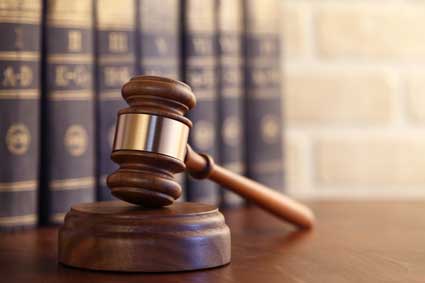Death Investigation Experts: These people range from attorneys, to human pathologists, to plant pathologists who testify in tree accidents, to mechanical engineers who testify in cases of personal injury caused by mechanical malfunction, to former police detectives, to computer experts skilled at uncovering evidence on a computer, to an aviation expert skilled at aviation psychology and accident investigation.
Death Investigation experts are available for when an individual needs an expert in a given area in order to bring justice to a case where a death has occurred. This is not always a criminal case, where forensics is involved, yet the need for a death investigation expert is no less critical, and frequently forensic experts can help in civil cases. Here are the typical Death Investigation experts introduced at the beginning of these lessons:
� Pathology � the study of disease in the human body.
� Toxicology � the study of drugs and poisons.
� Serology � the study of blood.
� Forensic Pathology
� Forensic Serology
� Criminalist
� Crime Scene Investigator/Technician
� Forensic Investigator
� Forensic Anthropologist
� Forensic Odontologist
� Forensic Entomologist
� Forensic Botanist
� Fingerprint Examiner
� Forensic Document Examiner
� Forensic Medical Transcriber
The patient or victim who died deserves to have his or her cause of death known. Frequently a second, outside autopsy is requested by the family, in order to find the answers. Private autopsy and postmortem investigation services are offered by a board certified forensic pathologist. It could be that the family simply wants to better understand why their loved one died, or the deceased may have been the victim of a wrongful death or of medical malpractice. There are times a private autopsy can help to allay the fears of the family.
It is important for the family to know that there are two kinds of an autopsy:
Gross Anatomy Autopsy is typically performed in a nonsurgical operating environment by a visiting or local pathologist. A visual inspection of the major organs is done and sometimes limited tissue or toxicology information is obtained. The findings of such an autopsy are typically not sufficient to determine a wrongful death judgment.
Forensic Autopsy is performed by specially trained medical pathologists in a surgical operating environment. All the organ systems are systematically and thoroughly examined; tissue samples are obtained to be examined for disease processes, drugs, chemicals, and toxic substances. The findings of everything are documented with photographs and a detailed report is the result. The entire procedure takes between two and four hours to perform, the final report can take several weeks to receive.
Autopsies are performed for the following reasons:
- Confirm the cause of death.
- Finding that diagnosis and treatment of an illness was either appropriate or inappropriate.
- Discovery of an inherited/congenital disease that may help other family members to get an early diagnosis and treatment for themselves.
- Determining the cause of death being an infectious disease which can help family members and close contacts get diagnosed and treatment if necessary. One example might be tuberculosis.
- Establishing evidence of a work-related disease that could lead to compensation for those remaining behind.
- Establishing critical information for the settling of insurance claims or death benefits
Other Death Investigation Experts:
Other Death Investigation experts are experts in a given field, and work to evaluate whether a death was caused because of negligence, malfunction of equipment, inadequate preparation, or psychological stress. If you recall, all deaths have to have a cause, both for the law and for those left behind.
Accident Investigation: Accidents occur when a hazard is missed during the establishment of preventive measures as in job or process safety analysis. Accident investigation experts determine the facts surrounding the incident and the lessons that can be learned in order to prevent such events in the future. Such investigations are initiated by insurance companies and law firms. Some agencies become experts at conducting vehicle accident investigations because there is a real shortage of investigators who specialize in this area.
Accident Reconstruction: Because accidents result in the destruction of property, or bodily harm to the point of death, experts in this area must use many techniques to recreate the events leading to the accident. Negligence or blame can then be assigned after all the data has been collected and analyzed.
Cancer: This is a class of diseases or disorders where cells divide at an unnatural rate, invade other tissues, and travel to distant sites, known as metastasis. This sort of unregulated growth occurs because DNA has been damaged allowing mutations to happen. Evaluation of specific types of cancer, the etiology of it, the epidemiology of it can determine whether there is need to establish a wrongful death suit. Environmental causes are frequently at the root of some cancers, whether in the outdoor environment such as toxic waste, or it could be work environment where workers are not protected adequately.
Carbon monoxide Emissions: This is an odorless, colorless, tasteless, highly toxic gas. If circumstances exist where carbon monoxide emissions can affect living beings, then grave illness or even death can occur.
Claims: This is a legal action in order to obtain money for a right that is protected by law. Adjusters, appraisers, examiners, and investigators work primarily for insurance companies investigating a wide variety of claims so that they can negotiate settlements.
DUI: Driving under the influence is the act of operating a motor vehicle after having consumed alcohol or drugs to the point where one's ability to operate the vehicle is terrible impaired. Because drunk-driving is responsible for many, many deaths, injuries, and accidents every year, such situations must be investigated in order for the injured party to bring appropriate suit against the perpetrator.
Forensic Psychology: Is a very specialized area where psychology is applied to the criminal justice system. Forensic psychologists deal not only with the psychological issues, they also deal with legal issues, laws, competency, whether a defendant was insane at the time of the crime, child custody disputes, and child abuse. This requires a degree in psychology with criminal justice courses/experience. Clinical, social, criminal investigative and developmental psychology can also prepare one for this specialty.
Forensic Toxicology: This is the use of toxicology as it pertains to the law. Most of the time this means analysis of body fluids, looking for alcohol, drugs, and poisons in the body. There is a great deal of overlap between forensic toxicology and clinical toxicology, criminalistics, forensic psychology, forensic pathology, pharmacology, sports medicine, veterinary toxicology, work with Poison Control Centers, employment drug testing, and environmental toxicology.
Forensic Geology: The use of geologic materials in criminal and civil cases is now commonplace with private and public laboratories analyzing soils and related materials. A common type of investigation involves identifying a material that is key to the case, or looking for the origin of a particular material. This specialist requires a very broad knowledge of the geology of an area, and geologic and soil maps to answer questions. Matching soil on the body to where it was found can tell whether a body has been moved or not. An individual with soil or rocks from a particular region can thus be placed at that point.
Indoor Air Quality (IAQ) deals with the interior air content that could have an effect on the health of the people living or working inside the building. This specialists identifies contaminants in the air such as mold, bacteria, carbon monoxide, radon, allergens, and other things. Immediate effects of exposure can bring about irritation of the eyes, nose, and throat, headaches, dizziness and fatigue. Most of the time these are short-term and treatable effects. Other health effects may show up years after exposure, or after extensive exposure periods. These effects can include respiratory diseases, heart disease, and cancer, which are severely debilitating or even fatal.
Injury Interpretation: Forensic pathologists can tell from the evidence found during a full forensic autopsy when deaths from injuries occurred or if there might be suspicious circumstances involved. This is often the first step in determining whether there are any issues of Medical Malpractice that can lead to legal proceedings.
Medical Malpractice: In the U.S., there are specific malpractice laws that have been developed to determine whether an act or omission by a health care provider deviated from accepted standards of practice and caused injury or death to a patient.
Motor Vehicle Accident (MVA): Motor vehicle accidents cause damage to vehicles, people, or structures. These kill about 1.2 million people a year around the world and injury 40 times that number. Accident investigators determine the cause and effect of the accident.
Preventive Medicine: Public health professionals work very hard to actual prevent disease rather than cure it. They are involved in entomology, epidemiology, pest control, and public health inspections. Such inspections include recreational waters such as pools and beaches, food preparation and serving, and industrial inspections and surveys.
Post Traumatic Stress Disorder (PTSD): Deals with the psychological consequences from being exposed to stressful experiences that are highly traumatic. Sometimes these instances can deal with actual or possible death, serious physical injury, physical or psychological threat.
Unexplained Hospital Deaths: Deaths that occur in a hospital setting that cannot easily be explained are evaluated by the pathologist during a full forensic autopsy in order to provide answers to the family and determine whether there are any possible Medical Malpractice issues.

























